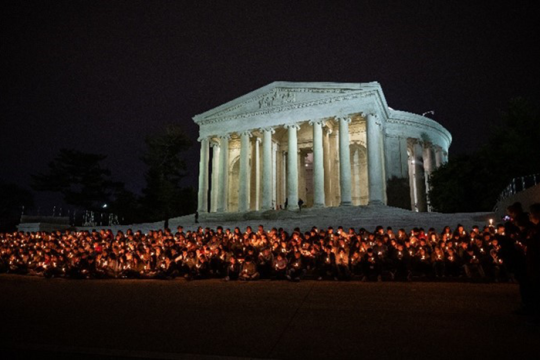
On August 3, President Obama announced that he was commuting the sentences of an additional 214 federal prisoners, marking the largest number of commutations in a single day in American history. In all, the President has now commuted 562 sentences as part of his ongoing effort to leverage his executive power to shorten unfair sentences and reduce the oversized federal prison population.
Of course, real and lasting criminal justice reform must involve significant policy change – Congress must act alongside the President to address mass incarceration and reduce the racial disparities in the criminal justice system. Fortunately, it appears that bipartisan support for criminal justice reform remains firm on Capitol Hill, including among leadership.
In July, House Speaker Paul Ryan stated in an interview for NPR that he plans to move criminal justice reform through the House of Representatives in September. At that time, Ryan told reporter Steve Inskeep that the House would consider a package of six bills and that he had set up a bipartisan working group to make sure the package would pass on the floor. He also made the point that many of the tough-on-crime policies of the 1980s and 1990s had gone too far, “ruining [incarcerated people’s] lives, ruining their families” and “hurting communities.”
Those comments marked the first major commitment to a timetable for criminal justice reform in the House.
While the makeup of the package has not been confirmed, the six bills to which Speaker Ryan referred likely include the Sentencing Reform Act (H.R. 3713) as well as legislation to reform the juvenile justice system, update prison anti-recidivism programming and overhaul federal requirements for criminal conviction. Most of these measures have bipartisan support, although there is concern that the latter proposal, mens rea (“guilty mind”) reform, could make it harder to prosecute white collar and environmental crime, and thus lead to Democrats pulling their support for the entire criminal justice package.
As a reform package is moving through the House, and as the Senate hopefully acts on its own criminal justice reform legislation, we will continue to advocate that Congress enact comprehensive reform of mandatory minimum sentencing laws for nonviolent drug offenses. These reductions are necessary to reverse mass incarceration and to create a criminal justice system that prioritizes rehabilitation over punishment. As the Jewish tradition teaches, “I have no pleasure in the death of the wicked, but that the wicked turn from his way and live” (Ezekiel 33:11). People who have committed nonviolent crimes involving the use or selling of drugs simply should not be locked away for decades at a time without consideration of the context in which the crimes occurred.
Related Posts

Why is this Right Different?: City of Grants Pass, Oregon v. Johnson and the Passover Call to Action

Highlights from the 2023-2024 L'Taken Season

